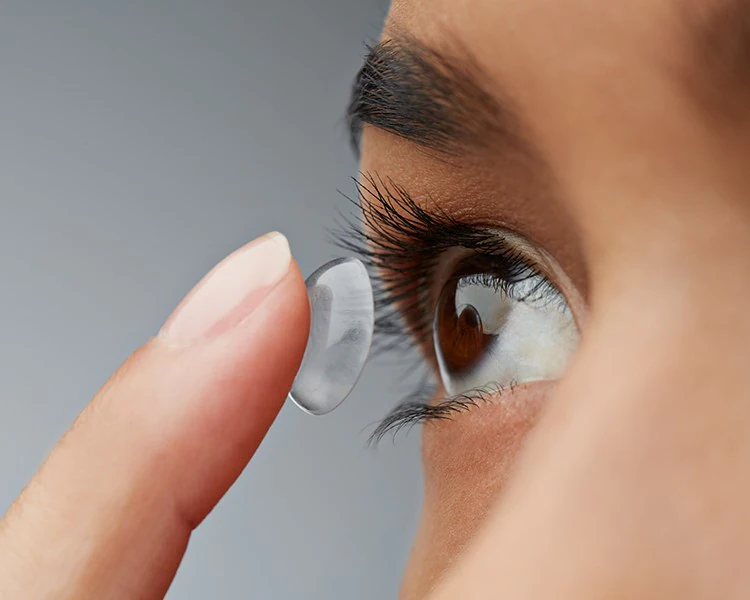Are you tired of constantly replacing your contact lenses? Are you looking for ways to save money and extend the lifespan of your contacts? Look no further! In this blog post, we’ll be sharing some tips and tricks on how to maximize the longevity of your contact lenses.
Proper Cleaning and Disinfection
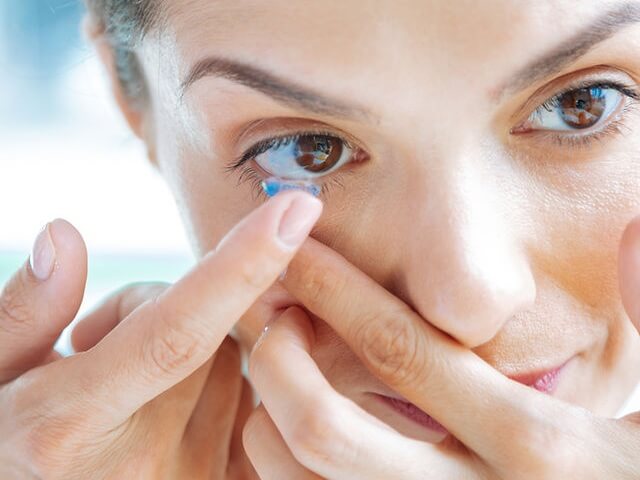
Source: jyotiangel.com
Your contact lenses are in direct contact with your eyes, so their cleanliness is of the utmost importance. Failure to properly clean and disinfect your lenses can not only reduce their lifespan but also increase the risk of eye infections. Therefore, incorporating diligent cleaning practices into your routine is critical. Additionally, if you’re looking for an alternative to contact lenses, you might consider trying out the top brand sunglasses catalog to protect your eyes from harmful UV rays while still maintaining a stylish look.
Start by washing your hands thoroughly with soap and warm water, then drying them with a clean, lint-free towel before touching your lenses. Next, remove one piece and clean it with the recommended solution by gently rubbing it in your palm with your index finger. This motion helps to remove any accumulated deposits and microorganisms.
Avoid using water or saliva to clean your lenses, as they contain microorganisms that can cause serious eye infections. Instead, use only fresh disinfecting solution every time.
After cleaning, rinse your optics with the solution and place them in a clean case filled with fresh solution. Leave them to soak overnight, or for at least as long as recommended by the solution manufacturer. In the morning, empty out the used solution and let your case air dry.
Choosing the Right Solution and Care Products
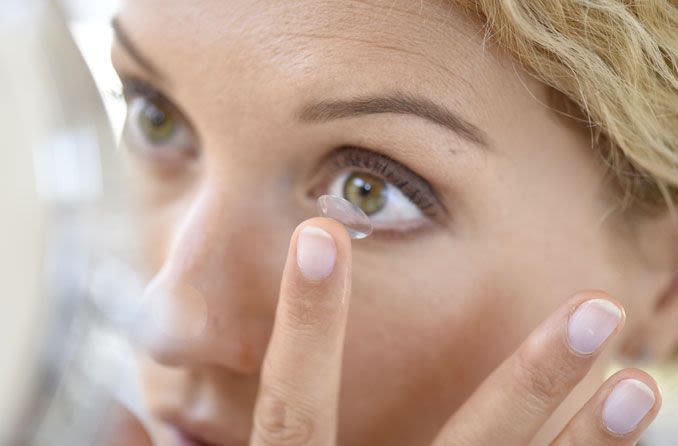
Source: allaboutvision.com
When it comes to care, not all solutions are created equal. Certain solutions may not be compatible with specific materials, and using the wrong solution can damage your lenses and irritate your eyes.
Multipurpose solutions are the most common type, designed for cleaning, rinsing, disinfecting, and storing contact lenses. They’re convenient and easy to use, but they may not be the best choice for everyone.
Hydrogen peroxide-based solutions are excellent at disinfecting and are often recommended for those with allergies to components of multipurpose solutions. However, they require a neutralizing step to avoid eye irritation, making them slightly more complex to use.
Always consult your eye care professional before switching solutions, and remember to never mix different types of solutions. It’s essential to stick with the same solution unless advised otherwise by a professional, as changing can cause lens discomfort or eye reactions.
Replacement Schedule and Avoiding Overwear
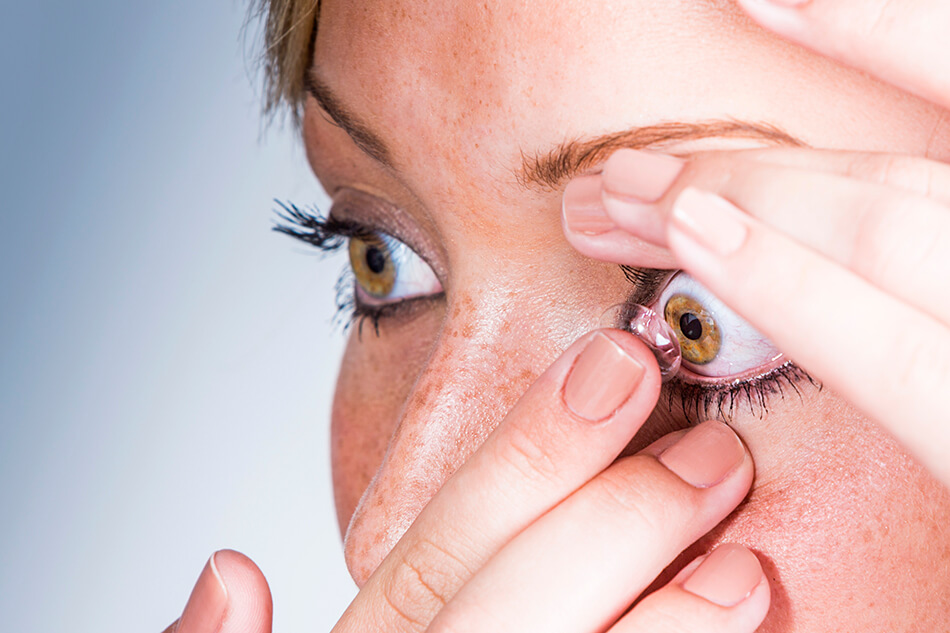
Source: perfectlens.ca
One common mistake that contacts lens users makes is wearing their lenses longer than recommended. Every pair has a prescribed lifespan—daily, bi-weekly, monthly, etc. Pushing beyond these limits can damage your optics and harm your eyes.
Overwearing your lenses can lead to protein deposits, which impair vision and comfort. Even more seriously, it can increase the risk of eye infections. This is why it’s important to follow your lens replacement schedule strictly.
Furthermore, avoid sleeping wearing them unless they’re specifically designed for overnight wear. It sleeping restricts oxygen flow to the cornea, potentially causing serious eye health issues.
Correct Storage
Proper lens storage is just as important as regular cleaning. When you’re not wearing your optics, they should be kept in a clean case, immersed in fresh solution. This keeps them hydrated and safe from contamination.
Never store them in water or expired solution, both of which can lead to eye infections. Also, avoid reusing old solution, as it loses its disinfecting power after the first use.
If you’re not going to wear your lenses for a while, they should be cleaned and disinfected with a fresh solution at least once a week. Always remember to discard any lenses stored for an extended period beyond their expiration date.
Avoiding Contact with Water and Other Irritants
While it might seem harmless, exposing your contact lenses to water can lead to severe eye infections. This is because water can harbor harmful bacteria and other microbes. Therefore, always remove them before swimming, showering, or indulging in water sports.
Other potential irritants include smoke, aerosols, and dust. These can stick to your lenses, causing discomfort and potentially damaging your lenses. Protect your eyes by wearing sunglasses or goggles in environments with these irritants.
Regular Eye Exams and Prescription Updates
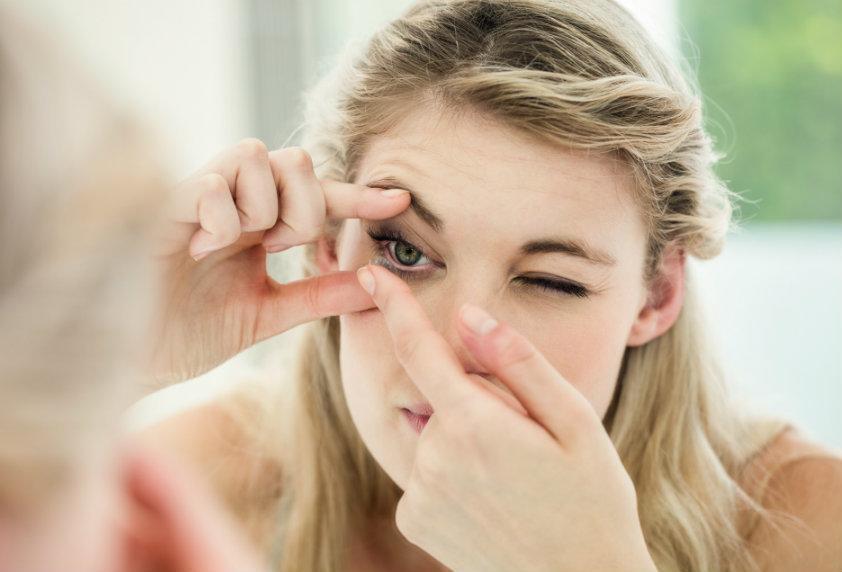
Keeping up with your regular eye exams isn’t just about updating your prescription—it’s also about ensuring your eyes are healthy. Your eye doctor can identify signs of potential problems early, such as corneal changes or infections, and provide appropriate treatment.
In addition, your doctor can ensure your lenses are fitting correctly and comfortably, and recommend the best type of optic and care products for your individual needs. Your prescription should be updated every one to two years, or as advised by your eye care professional.
Protection From Environmental Factors
Environmental conditions such as wind, dust, and dry climates can affect your contact lenses’ longevity. These conditions can cause your lenses to dry out, leading to discomfort and potential damage. Consider wearing wraparound sunglasses to shield your eyes from wind and dust. In dry climates, keep your eyes hydrated with approved rewetting drops.
Moreover, prolonged exposure to UV light can harm your eyes and may degrade certain types of contact lenses. Consider wearing UV-blocking contact optics, and pair them with sunglasses for added protection.
Signs of Wear and Tear
Lastly, it’s crucial to be aware of the signs of lens wear and tear. These include any noticeable damage like cracks or chips, as well as discomfort or blurred vision when wearing the lenses.
Never wear a damaged optic—it can harm your eye and cause serious complications. Even minor scratches can allow bacteria to collect, leading to infections. If you notice any changes in your vision or comfort, remove your lenses and consult your eye care professional immediately.
In conclusion, by following these tips and tricks, you’ll be well-equipped to maximize the lifespan of your contact lenses while ensuring the health and comfort of your eyes.


